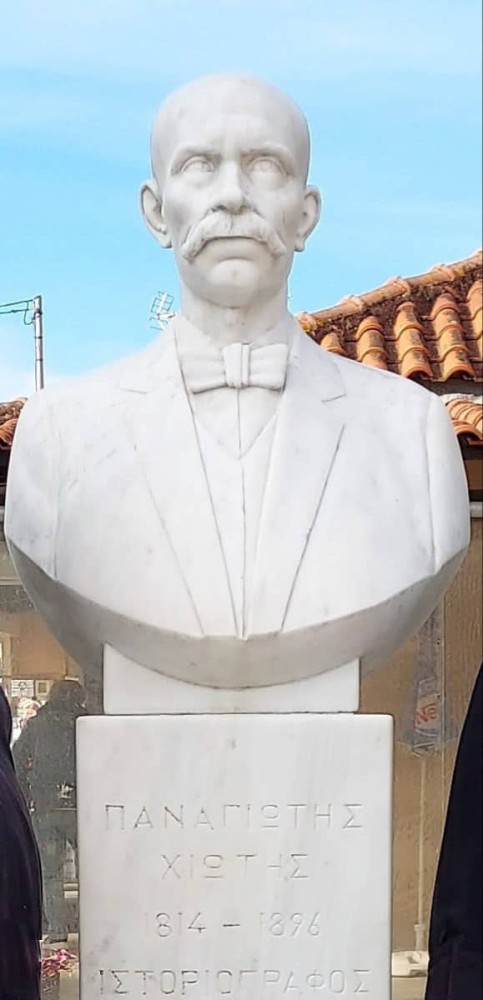
The vocation of Pan. Chiotis' inclination towards letters attracted the attention of the first Bishop of Zakynthos, Gabriel Garzoni, who helped him. Chiotis studied under the Epirus teacher Christoforos Filitas (1787-1872). In 1836 he founded a private school, where he taught Greek, Italian, history, and other circular subjects. Along with teaching, he continued his research in archives of the Ionian and foreign countries and published various studies, the most important being the Historical Memoirs of the Island of Zakynthos, the publication of which began in 1849 and continued after Chiotis' death, by another historian, L. Ch. Zois. Apart from the Memoirs, his other important work is the publication of the History of the Ionian State from its foundation to the Union (Years 1815-1864), in 1874, and in 1877, Volume B containing the years from the Adam Commission in 1824 to the Union in 1864. In recognition of his work he was appointed Greek teacher by the Greek Government (1866), and was also awarded the title of historian of the Ionian State. In 1869 he was awarded the 'Silver Cross of the Saviour' and in 1889 the 'Golden Cross of the Saviour'. His contribution to literature and culture continued from the position of Supervisor (Eforos) at the Public Library of Zakynthos, where he worked unpaid and donated his own books. As a branch of the library, he also founded a museum with a variety of contents (paintings, codes, sculptures, vases, coins, etc.). He wrote for the most important Zakynthian periodicals of his time, mainly of literary, social, historical and historical content: the Philological Journal of Youth, Hippocrene, Kalliopi, Aganippi, Zante Vice, Corinna, Kypseli, 'Ai Mousai', while he also worked closely with the short-lived periodical Epitheorisis, which was published in Zakynthos. As G. N. Moschopoulos states, "his intellectual abilities, his education and any methodological capabilities must be understood as a consequence of a long self-teaching process in local (Zakynthian or wider Ionian) libraries, but also in the intellectual institutions of the West, where Chiotis sought a broader education. ", while for Spyros Kavvadias, Chiotis makes a breakthrough in Ionian historiography, as he writes his studies only in Greek, as proof that the Ionians are genuine Greeks.
